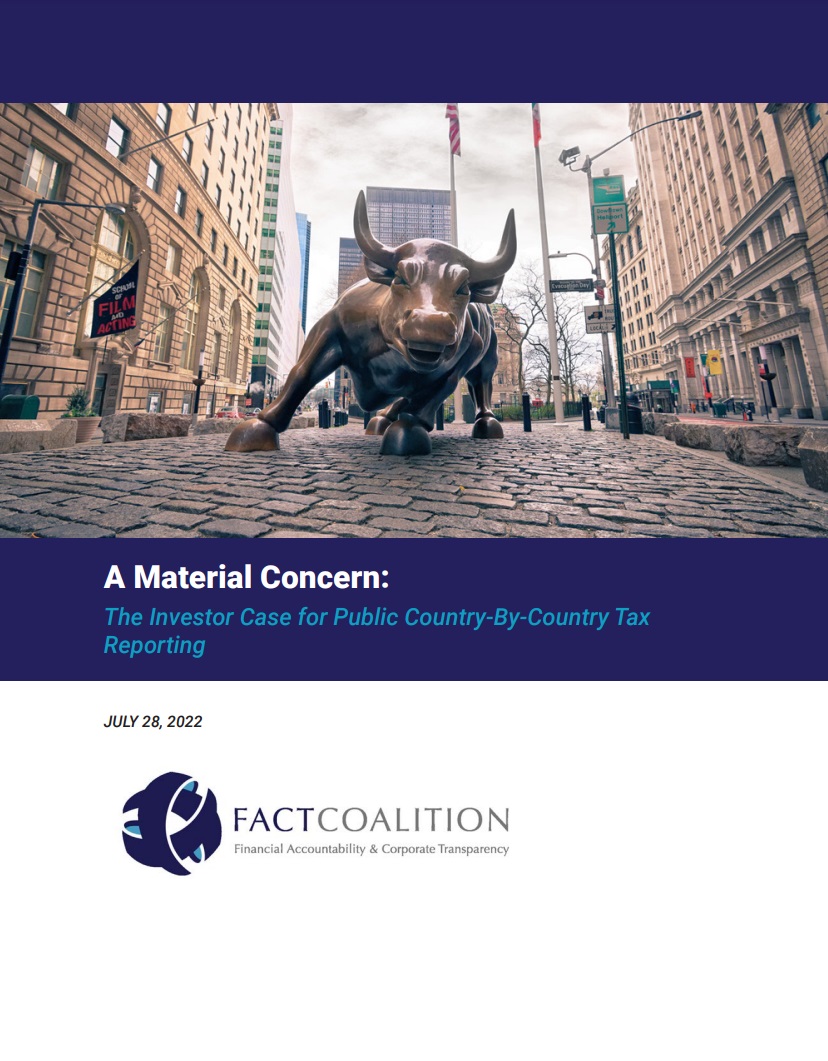Investors are in the business of being in the know—and right now, there is a lot to know in global markets. Global governments seeking to tackle existential threats like climate change and the global Covid-19 pandemic, are engaging in previously unthinkable multilateral and unilateral efforts to crack down on profit shifting tax practices by MNEs seeking to reduce their tax liability. The same existential threats are impacting international supply chains and global markets, which are also continually being revolutionized by technological advancements that are crumbling historical business practices and eroding international boundaries. At the same time, political forces all over the world are pushing back on more global and more democratic institutions, in a way that is creating geopolitical risk.
Patchwork progress through voluntary reporting standards like the Global Reporting Initiative and shareholder proposals at individual companies are not enough to satisfy investors’ demonstrated need for information. The problem remains that, due to inadequate SEC disclosure rules, there is very little public information regarding any of the monumental headwinds investors face as they try to navigate their investment decisions—making it all the more difficult to be “in the know.”
FACT’s latest report, “A Material Concern: The Investor Case for Public Country-by-Country Tax Reporting,” explores how public country-by-country reporting (PCbCR) efforts have matured and, in doing so, shown their increasingly apparent usefulness to investors. PCbCR would require companies to publicly list information on business activities, employees, revenues, profits, and tax on a jurisdiction-by-jurisdiction basis. This information, which many multinationals already report to the IRS would improve securities analysis, providing a more complete picture of material risks relating to free cash flows, corporate governance and operational practices, and geopolitical risks, among other benefits.
It is time for the SEC to heed growing investor calls and international reporting trends, and to promulgate PCbCR rules in the United States.

